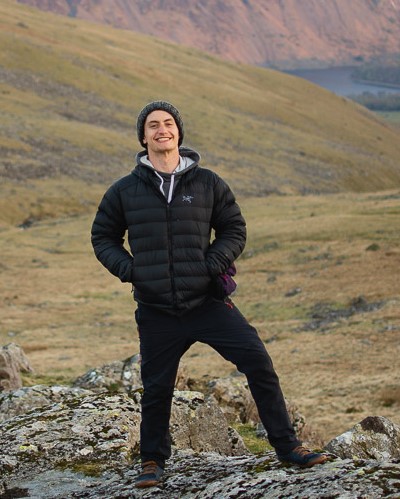CDT Opportunities
Oppertunities taken whilst studying under the Geospatial Systems CDT
This CDT has many opportunites to work with industry, attend seminars and share knowledge. Under this tab I will keep a record of some of these opportunities.
MRes Group Project: Archeological degradation
Due to the restraints of COVID and geography, the entire group project was carried out online, with the four team members in Nottingham, Newcastle, Ireland and Italy. The Vindolanda trust commissioned the groups to monitor and measure the degradation and risk to the roman fort of Magna on Hadrians wall. This was done via a soil erosion model, drainage analysis, satellite vegetation change analysis and a web page. Judged the most effective group our project was put forwards for publication found here Integration and Analysis of Multi-Modal Geospatial Secondary Data to Inform Management of at-Risk Archaeological Sites and was also made the cover image of this journal article.
Challenge week 2021
This challenge week involved group work within a vertically and horizontally mixed set of CDT student Cohorts. The 5 day challenge took place in Newcastle and involved a 4 "hack-a-thon" style work process which was then presented to the CDT and industry partners at the annual assembly on the Friday.
This years challenge was to use geospatial skills to predict the most profitable and desirable places to place electric car chargers. This was done for the ZeroCarbonFuture group and Kinewell energy.
Our method created heat maps of current chargers and used correlation and hotspot anayses to suggest which factors make Electric Car chargers the most used. We also noted that there was a lack of data on what the future customer will demand if all drivers have to use electric vehicles. To solve this issue we proposed a mapping system where drivers highlight areas they would like chargers. A pilot example site was created: http://www.wherewouldyoucharge.co.uk/.
Modules
Programming 20 credits
Non-assessed member of Computer Science module giving a comprehensive overview of the principles of programming, including such concepts as procedural logic, variables, flow control, input and output and the analysis and design of programs. To provide better strucuture to my self taught programming
Machine Learning
Non-assessed member of Computer Science module providing indepth theoretical and practical knowledge on Machine learning and AI including the use of Tensorflow for Artifical Neural Networks and Convolutional Neural Networks.
Foundational Business Analytics
Business school module with additional geospatial sessions: programming in Python, using Sklearn and Matplotlib for statistical analysis
Data at Scale: Management, Proccessing and Visualisation
Business school module using Postgress SQL for big data analytics and database management
Mapping for Engineering surveying and GIS
Civil engineering module on the use photogrammetry and Lidar for mapping
Conferences, Webinars and Online training courses attended
Satellite data analysis and Machine Learning classification with QGIS workshop
2 part workshop run by AI for Good in May, 2020
Introduction to Python for Remote Sensing
run by the Geological Remote Sensing Group
Northumbria Water Innovation Festival
Joined a "innovation sprint" run by Catapult Satellite Applications and Northumbria Water. We combined expertise from different players to design potential satellite based solutions for real world problems faced by water companies. We are currently in the process of attempting to action some of the designs put forwards during the festival.
Geo for Good 2021
Attended the Online conference including giving direct feedback to developers about how I use Google Earth Engine and what changes I would like to see in the future. It was also great to watch the session where community users presented the products they had created with the open source software. These included GEEMap, GEEtools, App and spectral indices lists.
